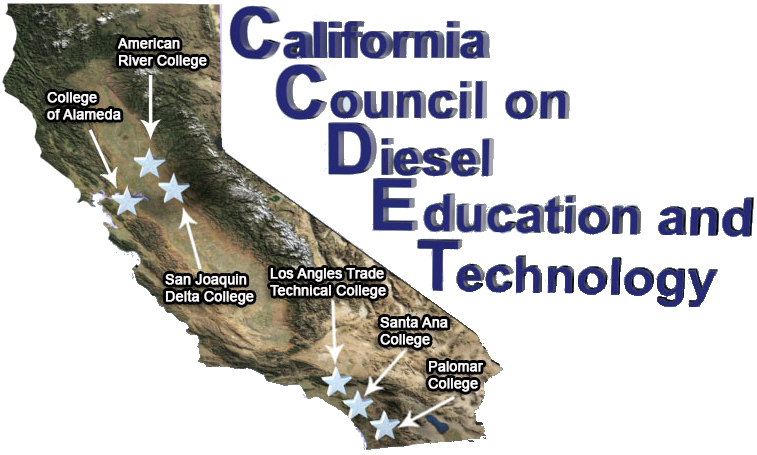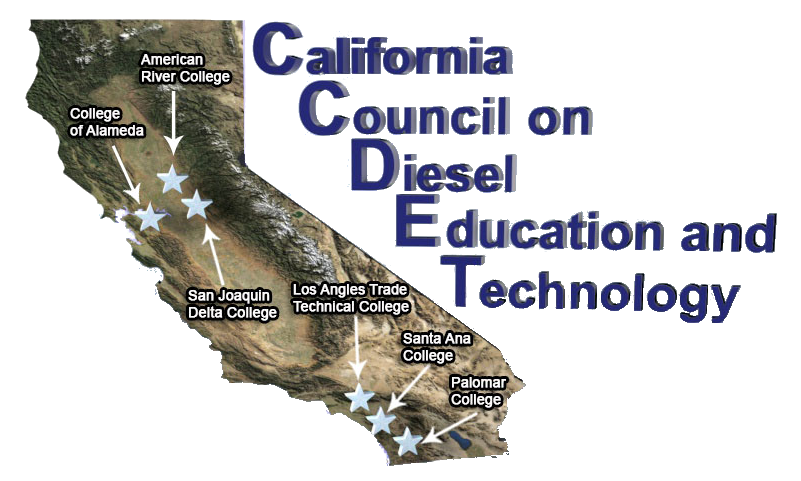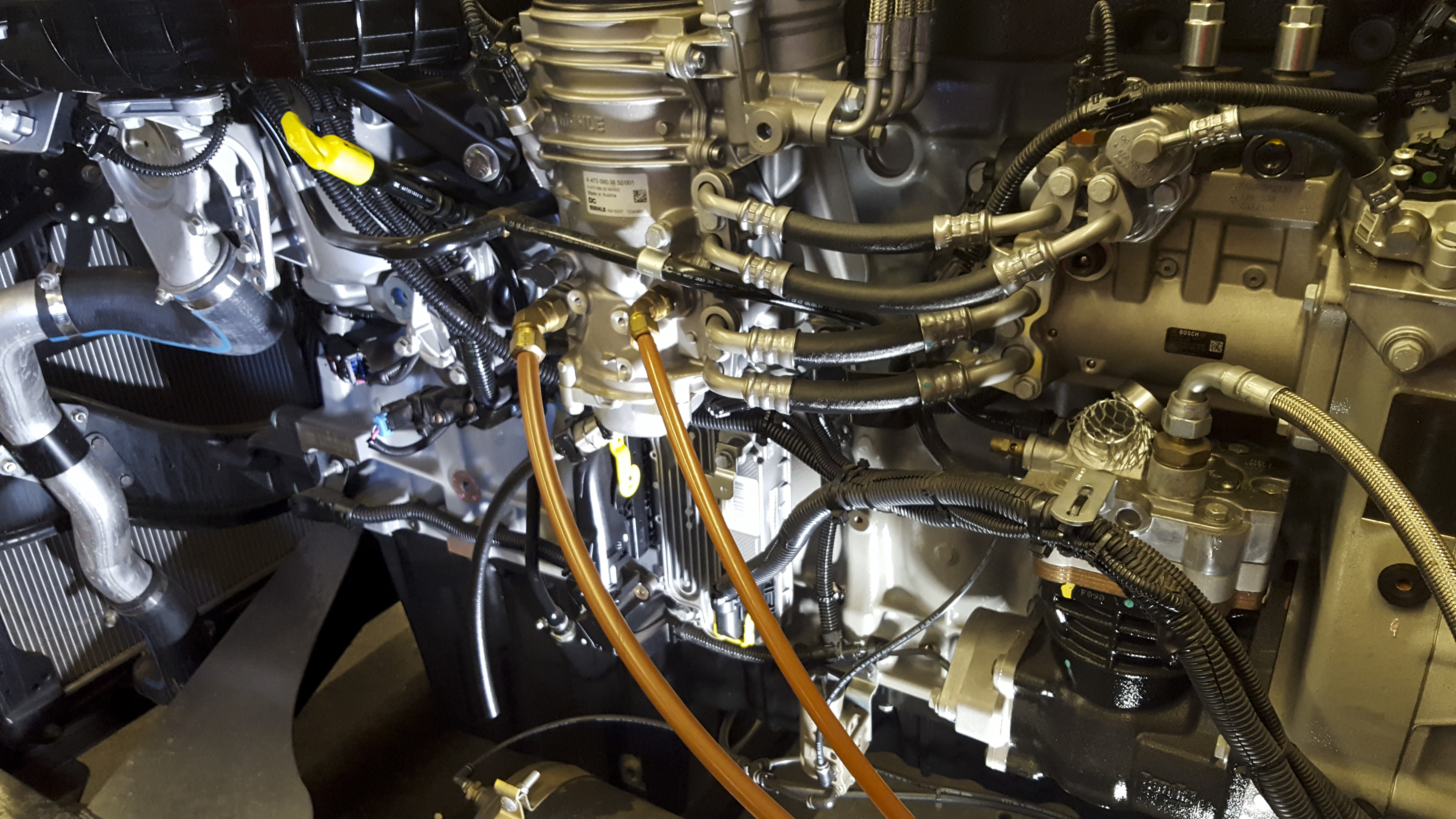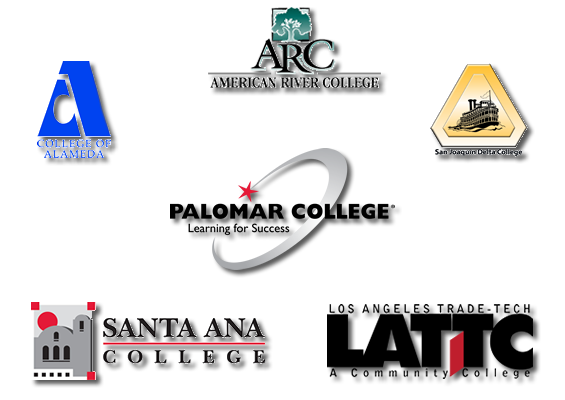California Council on Diesel Education and Technology
What is CCDET?
The Council
The California Council on Diesel Education and Technology (CCDET)
In 1992 a consortium of diesel truck and bus engine manufacturers and dealers, California community colleges, and the California Air Resource Board (CARB) came together to form the California Council on Diesel Technology Education and Technology (CCDET). We, diesel technology programs at six community colleges–College of Alameda, American River College, Los Angeles Trade-Technical College, Palomar College, San Joaquin Delta College, and Santa Ana College–are the backbone education and training partners of CCDET. We are united by two overarching goals:
- Provide the skilled workforce necessary for clean and green transportation in California; and
- Ensure underserved and disadvantaged individuals and communities have good air quality and access to education and training that sets them on a path to family supporting careers and long-term success within a robust, clean and green transportation industry.
In 2007 the CCDET Supplemental Environmental Project (SEP) began. The SEP provides funding to support our diesel technology programs and ultimately the achievement of our goals. The purpose of this report is to highlight our objectives, activities, outcomes, and how SEP funding supports our efforts.
The ARB
The California Air Resources Board is the state agency responsible for protecting air quality, such as emissions from diesel trucks. Through classroom and hands-on training classes provided by CCDET, the trucking industry can better understand their vehicles and better comply with the California regulations that apply to them.
The Industry
The heavy-duty diesel industry (truck owners and operators and truck organizations) provides the ARB and the community colleges with input regarding the day-to day operations of their business. The industry benefits by attending CCDET courses and workshops.
Engine Manufacturers
& Dealers
Heavy-duty engine manufacturers & dealers assist in the design of equipment training, provide access to technical information, and help procure equipment for classes.
The Colleges
California Community Colleges serve the vocational needs of the community. They educate Technicians through a balance of formal classroom and hands on training. The curriculum includes the study of diesel engine theory, emissions, government regulations and programs directed at heavy-duty diesel engines, along with appropriate hands on training.
The California Community College system provides excellent locations for training because training infrastructure, equipment, and vocational training programs are already in place. Films, videos, slide presentations, and actual components allow the trainees to become familiar with the problems and solutions involved with dealing with government regulations.
“California Community Colleges educate Technicians through a balance of formal classroom and hands on training.”
CCDET enrollment or content questions: See contact for college near you.
Website Admin: Boldinke@lattc.edu (Ken Bolding)
This page last reviewed .




